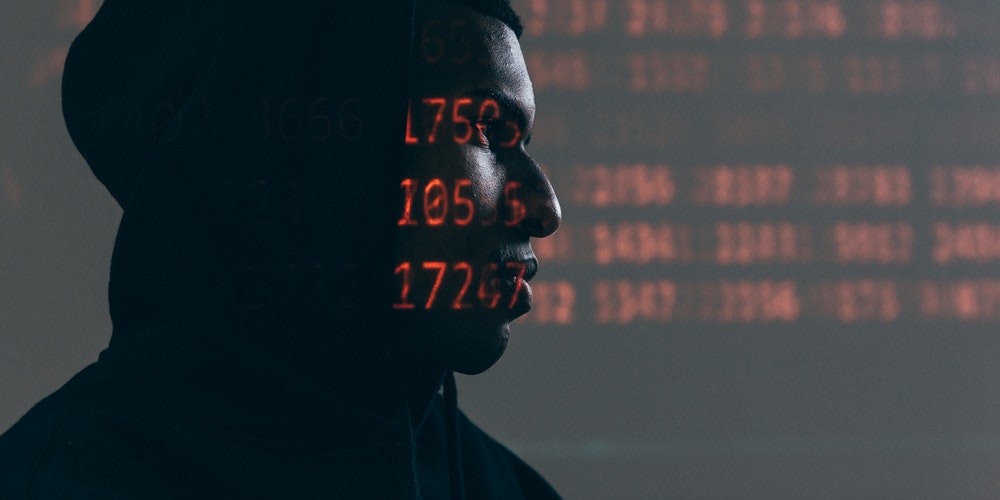Don't Be A Victim: 5 Ways To Protect Your Personal Accounts Online
Misc | 11-04-2022 | Jen Ongkit

It seems like every day there's a new headline about a data breach at a major company. Recently, hackers stole a whopping $600M from a Vietnam-based technology company, Sky Mavis. While it's important to stay informed about these incidents, it's even more important to take steps to protect your own personal information. After all, data breaches can happen to anyone, which can have serious consequences.
Hackers and cybercriminals are becoming increasingly sophisticated in their methods, and as a result, data breaches are becoming more common. Whether you're using social media, online banking, or shopping websites, your personal information is at risk if you don't take precautions. If your personal information slips into the wrong hands, it can lead to identity theft, financial loss, and a host of other problems.
So many people fall victim, and they don't know how they got there or what they did wrong. That's why I created this article where I share some of the best practices, so you don't become a victim yourself.
Let me reveal 5 ways to keep your accounts safe and secure
#1 Use a strong password that is difficult to guess
One of the most imperative things you can do to protect your online account is to use a strong, difficult-to-guess password. A strong password must have a combination of uppercase and lowercase letters, numbers, and symbols and be at least eight characters long.
It's also vital to avoid using easily guessed words like "password" or easily accessible personal information like your birthdate. If you're having trouble thinking of a secure password, consider using a passphrase made up of several random words.
#2 Use two-factor authentication when available
2FA adds an extra layer of security by requiring you to enter both a password and a code from a physical device, such as a cell phone, in order to log in. This makes it more complicated for hackers to access your account, even if they have your password.
Many major online services, such as Google and Facebook, offer 2FA, and it's always worth taking advantage of when it's available. So next time you're logging into one of your favorite websites, be sure to enable 2FA for added peace of mind.
#3 Think before you click on links
When you see a headline that sounds too good to be true or an email from a familiar sender with a suspicious subject line, take a moment to examine the link before you click on it. If the URL looks strange or the email is from an unfamiliar address, proceed with caution.
So how can you tell if a link is safe? The best way is to hover over the link with your mouse and look at the URL that appears. If it doesn't match the URL of the website you're on, or if it looks suspicious in any other way, don't click on it.
#4 Keep your software up to date
When software developers release new versions of their programs, they often include patches that fix known security vulnerabilities. By downloading and installing these updates, we can close these gaps in our defenses and make it much harder for viruses and other malicious software to infect our computers.
Most software updates are released automatically, but you may need to manually install them from time to time.
#5 Use a secure browser extension
Companies are constantly collecting data on our behavior from the websites we visit and the searches we make. While this information can be used to provide us with personalized content and targeted ads, it can also be shared or sold to third parties without our consent. Worse still, it can be used to exploit our personal preferences and biases.
One way to secure your privacy online is to use a secure browser extension. These extensions encrypt your web traffic and prevent third-party trackers from collecting your data. They also allow you to block unwanted content and customize your browsing experience. While they may not provide complete anonymity, they are an effective way to safeguard your privacy online.
Bonus Cybersecurity Tips
- Personal information should not be shared or posted online
- Download apps only from trusted sources
- Test your web camera and microphone for vulnerabilities
- When connecting to public Wi-Fi, use a VPN.
- Avoid public charging stations
- Check privacy settings on all social media accounts
- Back up your data regularly
Bottom Line
As we continue to share more and more personal information online, it's critical that we take steps to protect our accounts from hackers and cybercriminals. I know it's tempting to just log in to your favorite social media site and scroll through your newsfeed. But before you do, there are several things you should know about protecting your personal information online.
We've outlined five ways to help keep your accounts safe and secure. With these precautions in place, you can feel confident that your personal accounts are well protected. Be vigilant! In a general sense, it's up to you to be proactive about your online security.


.jpg)

.jpg)
.jpg)
.jpg)
.jpg)
.jpg)

